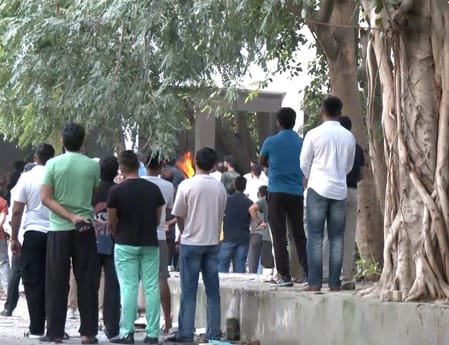
Caberra, July 14 (IANS) Australian researchers are trialling a new approach to farming that could help tackle agriculture costs and cut climate emissions.
Crushed basalt, an abundant and low-cost volcanic rock byproduct from mining and construction, could save Australian farmers a large sum every year and help fight climate change, researchers from the University of South Australia (UniSA) said on Monday.
A national trial is testing crushed basalt, costing as little as 30 Australian dollars (19.69 US dollars) per ton, as a low-cost way to reduce soil acidity, boost crop yields, and capture carbon, all using standard farm equipment and minimal extra expense, said Binoy Sarkar, senior research fellow at UniSA’s Future Industries Institute, who led the trial.
“Australian farmers spend nearly 1.2 billion Australian dollars (787 million US dollars) a year to tackle soil acidification, using expensive liming materials that in themselves contribute to greenhouse gas emissions,” Sarkar said.
Basalt not only reduces soil acidity but also supplies key nutrients such as phosphorus, calcium, magnesium, and silicon, cutting reliance on chemical fertilisers and boosting farm profits, he said.
Australia’s farms produce nearly 18 per cent of the nation’s greenhouse gases, reports Xinhua news agency.
Replacing lime with basalt could cut these emissions and help achieve net-zero by 2050, according to the collaborative team involving Australia’s UniSA, James Cook University, the Tropical North Queensland Drought Hub, and industry partners on two federally and privately funded projects.
The initiative also benefits mining, giving waste basalt new value as a soil amendment, researchers said.
If successful, the technology could drive large-scale adoption, allowing farmers and quarry owners to earn carbon credits and promote sustainable practices, Sarkar said, adding ongoing trials aim to build trust and accelerate uptake nationwide.
–IANS
int/sd/






